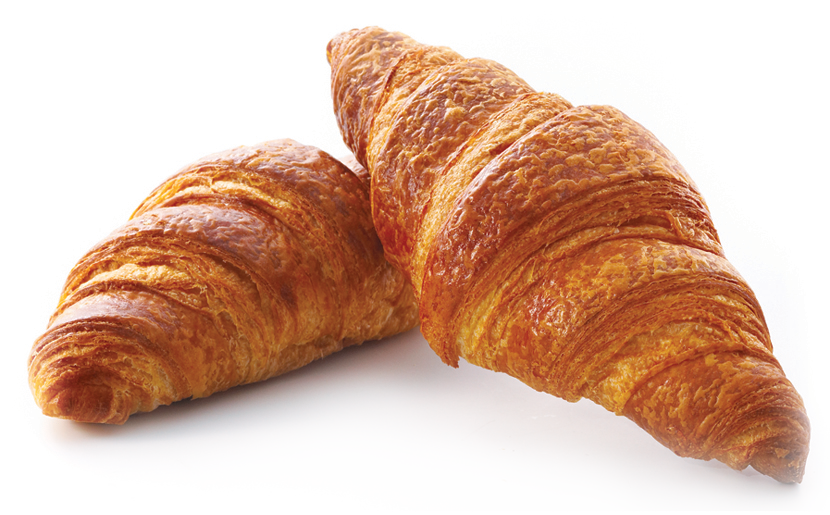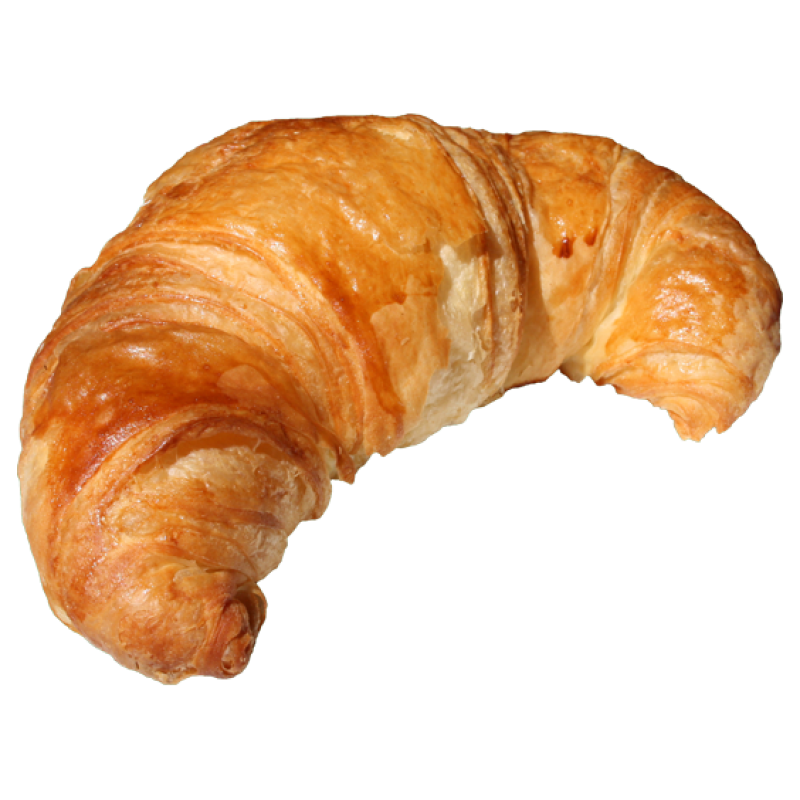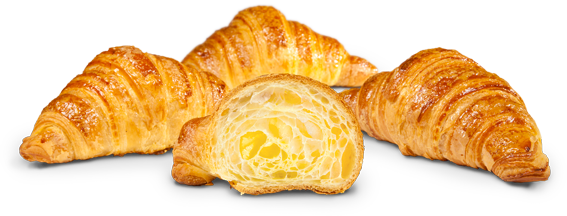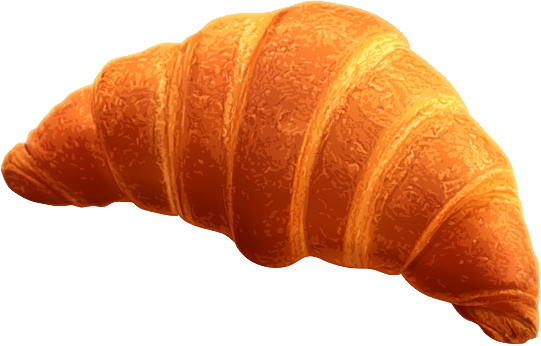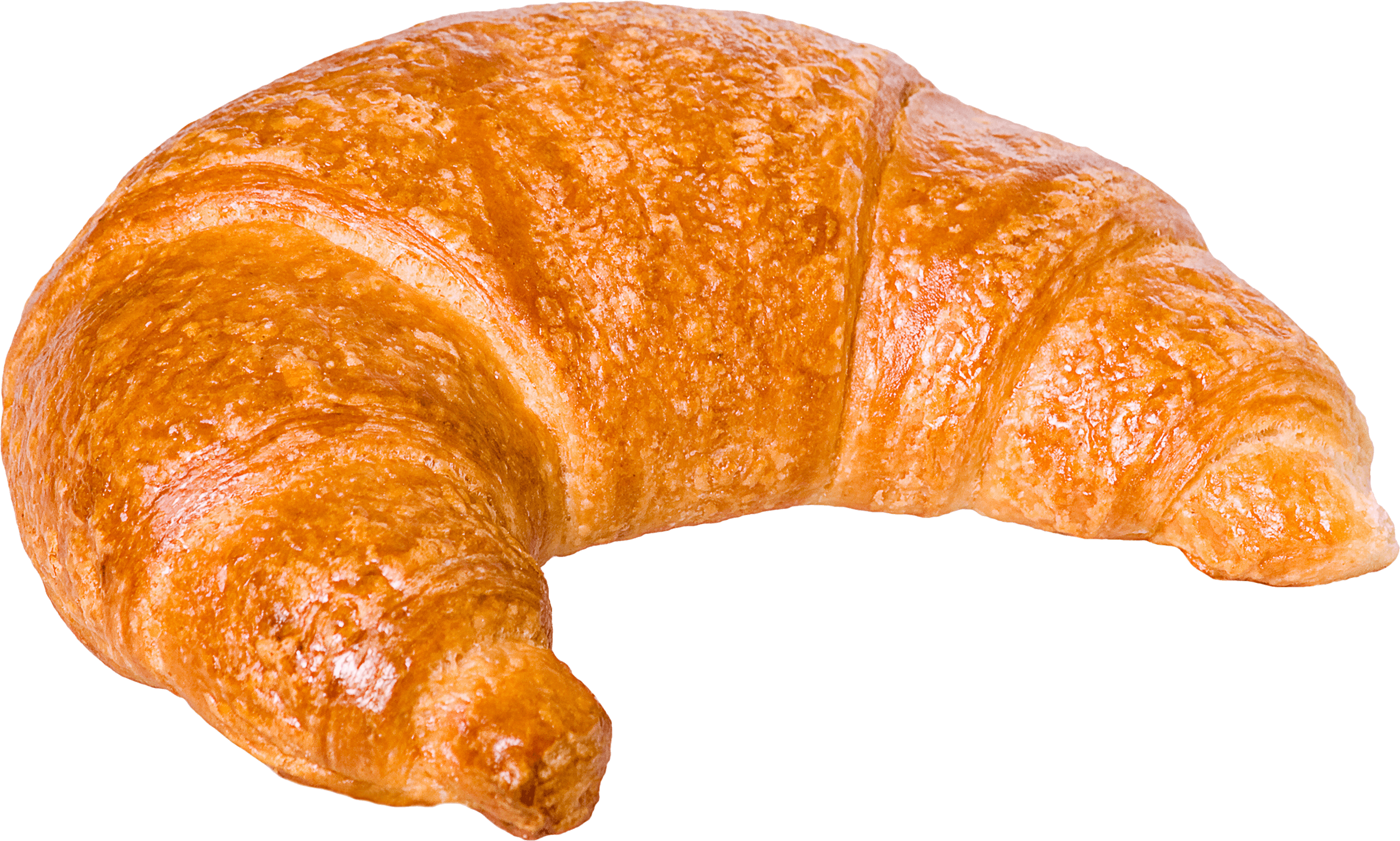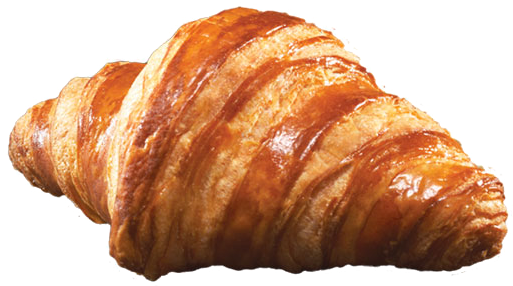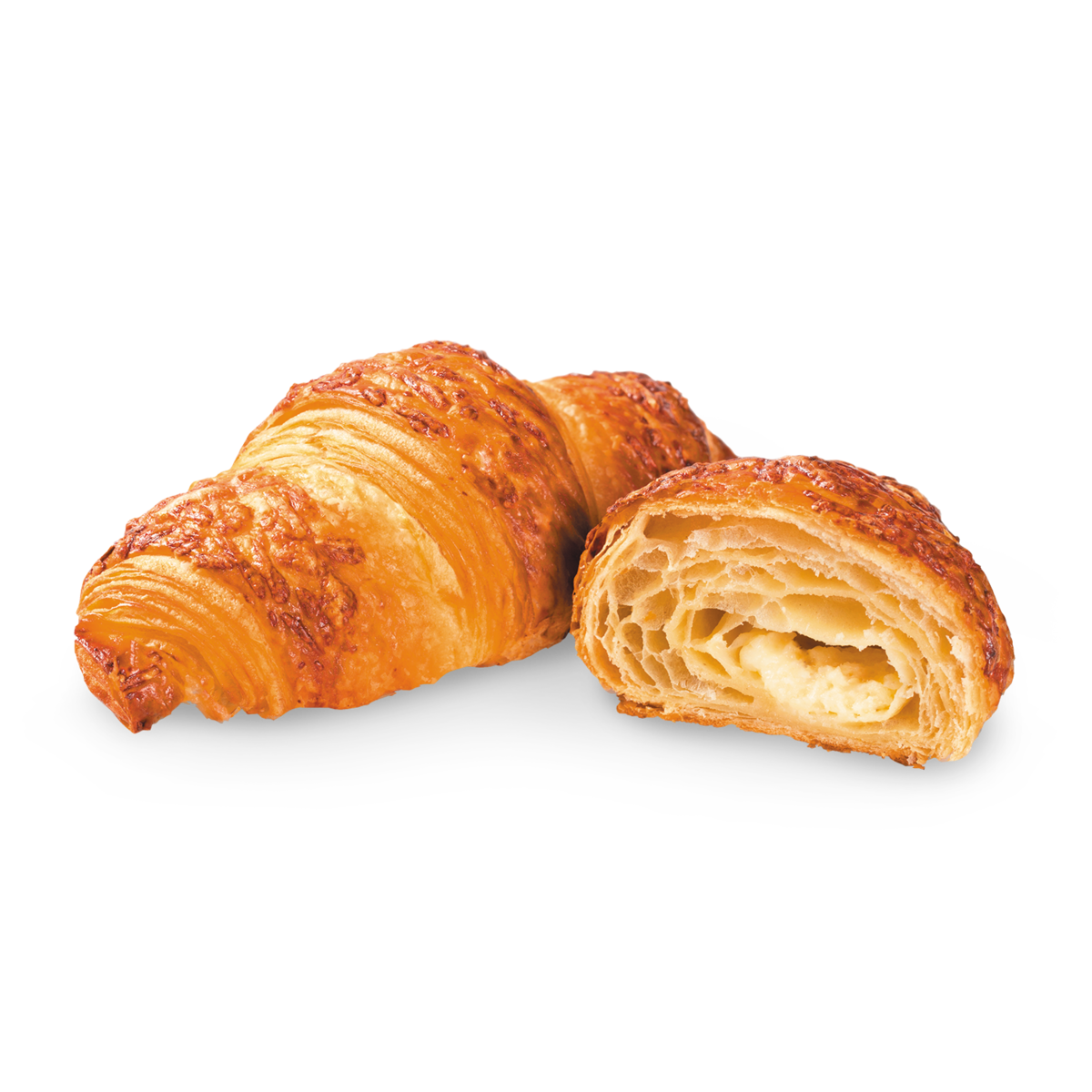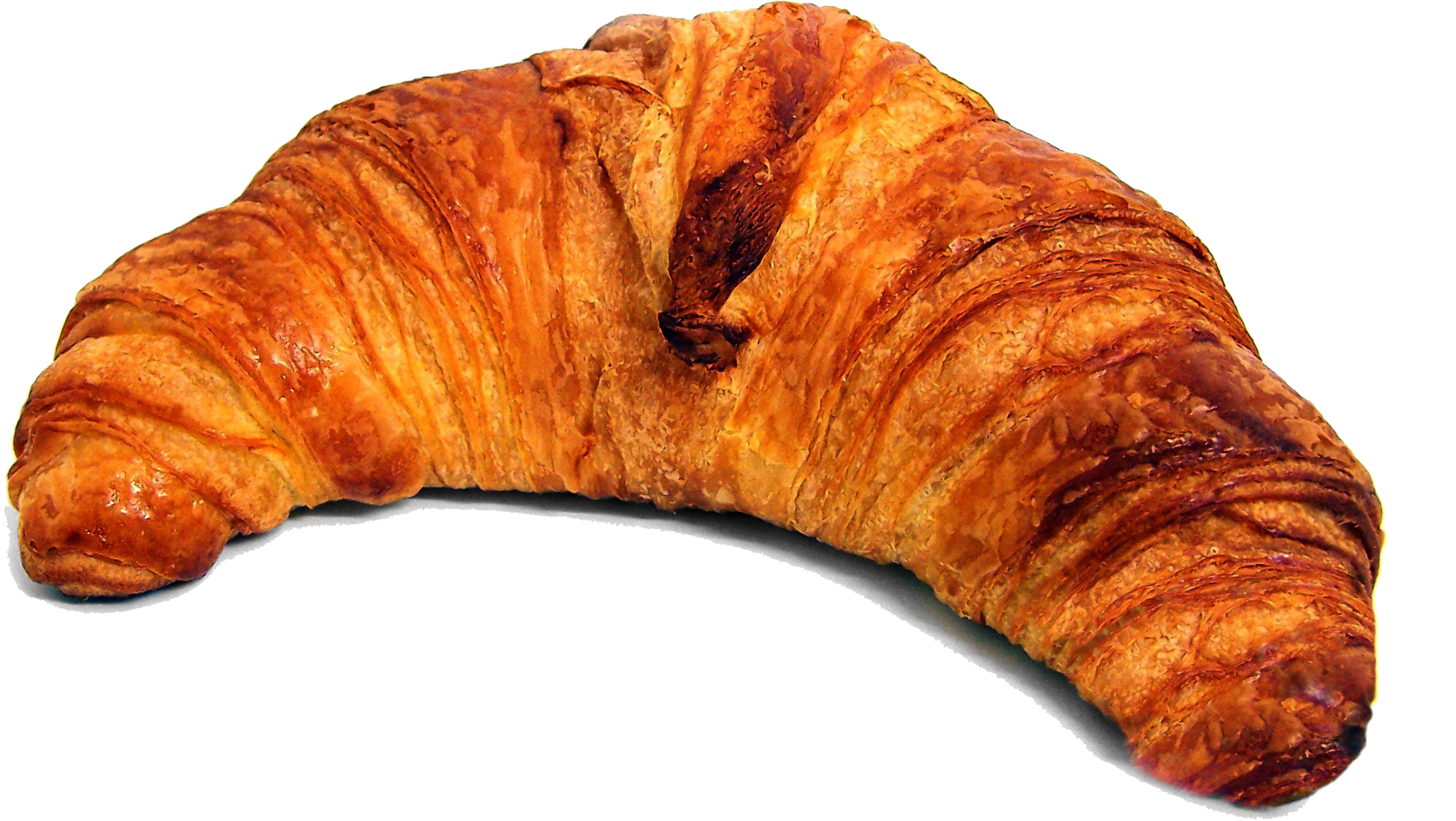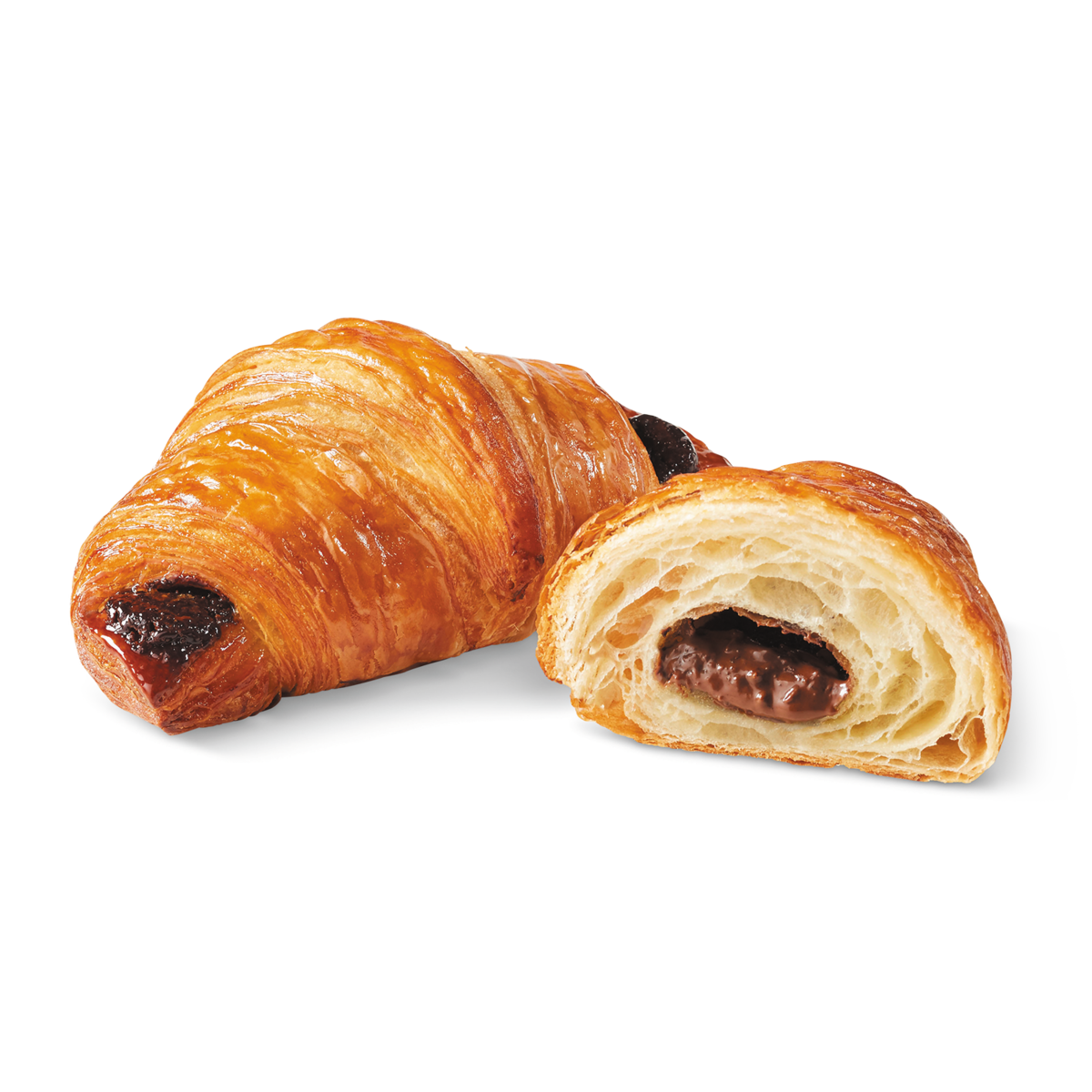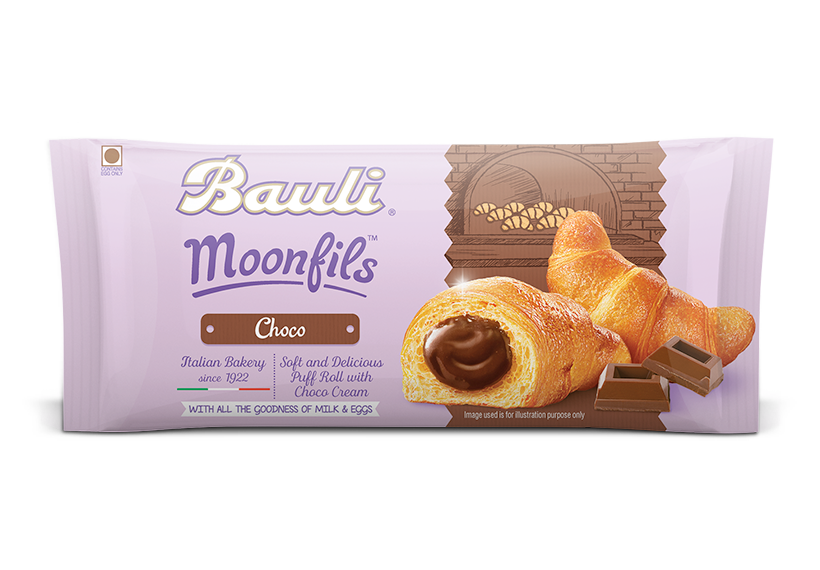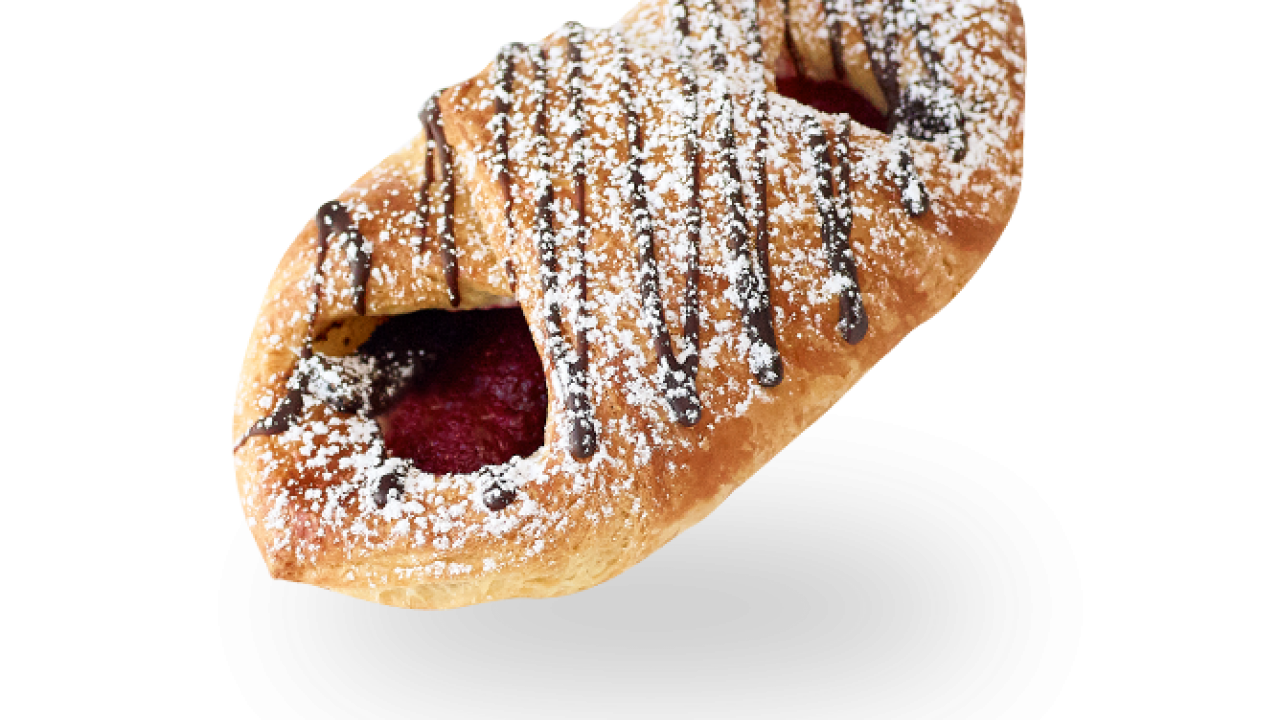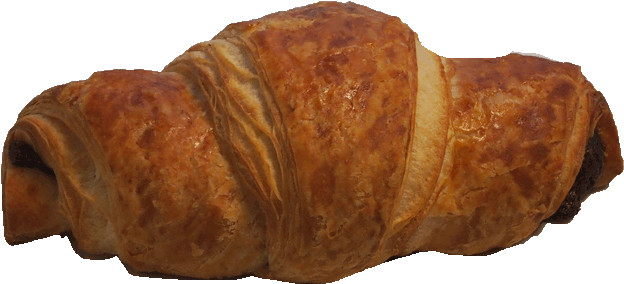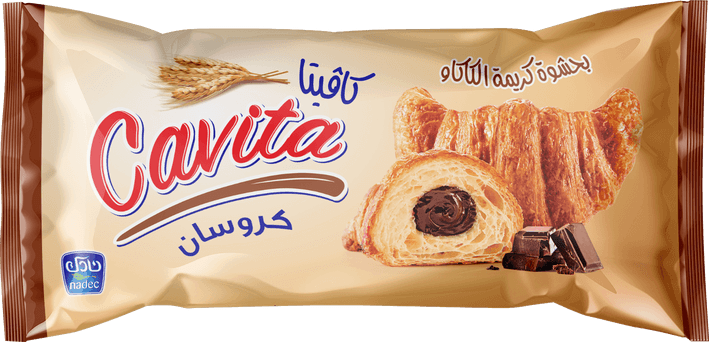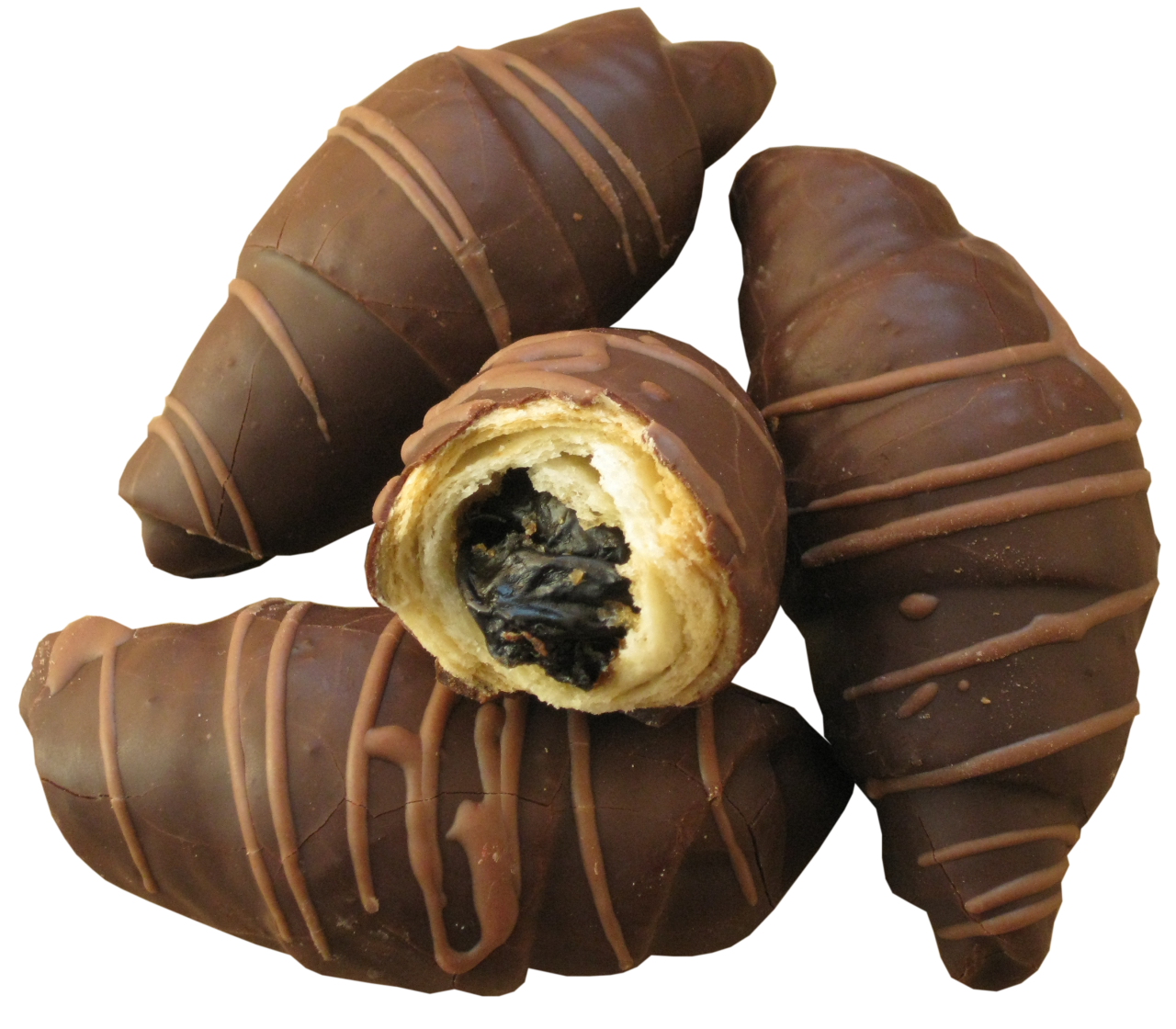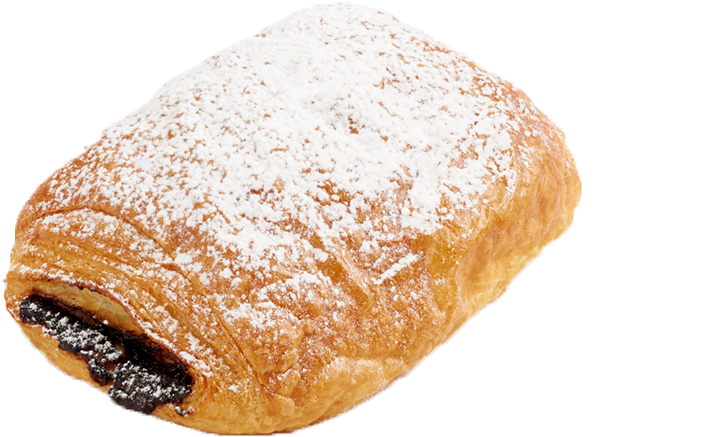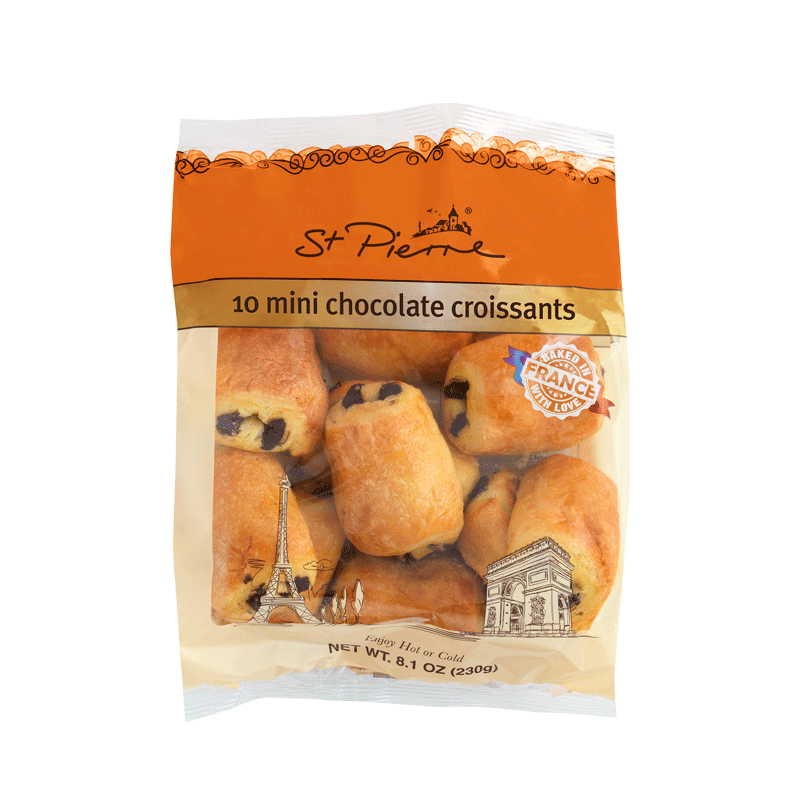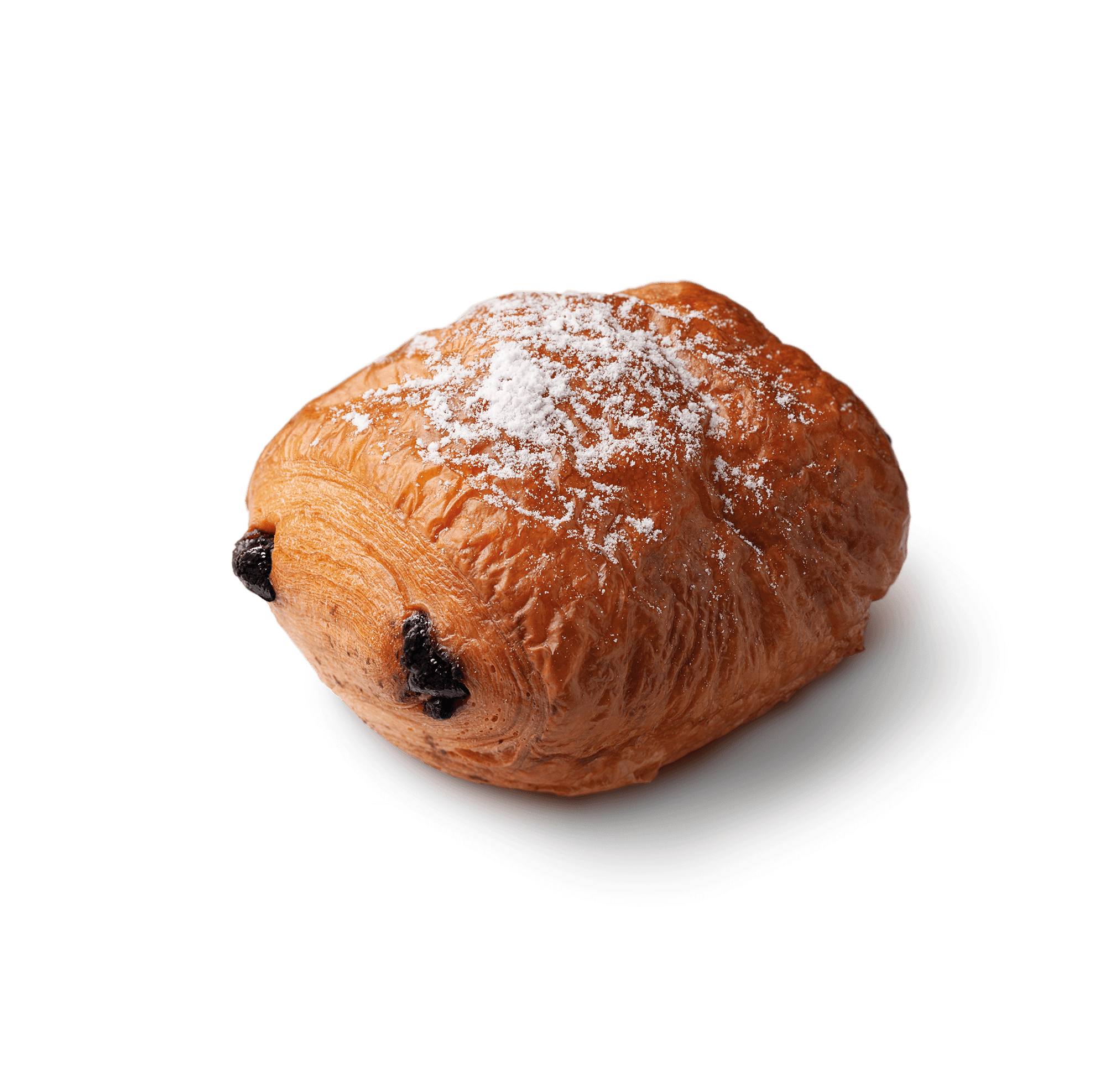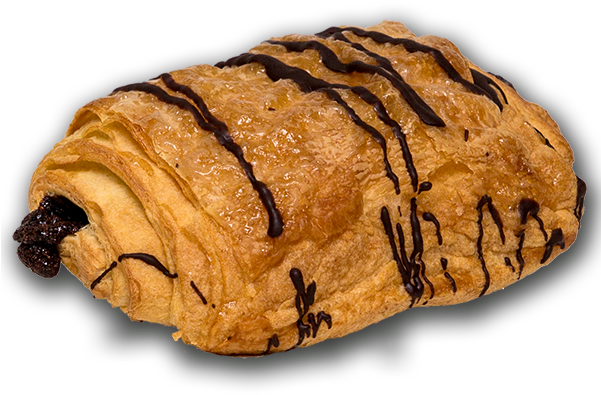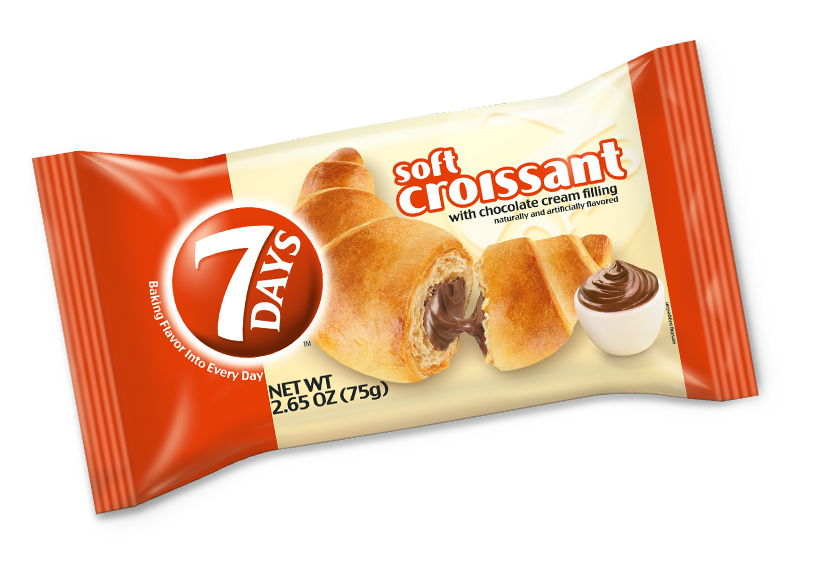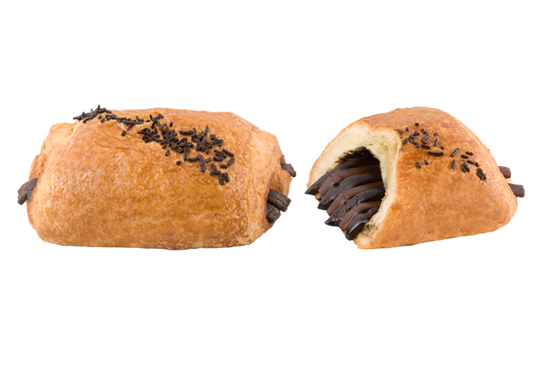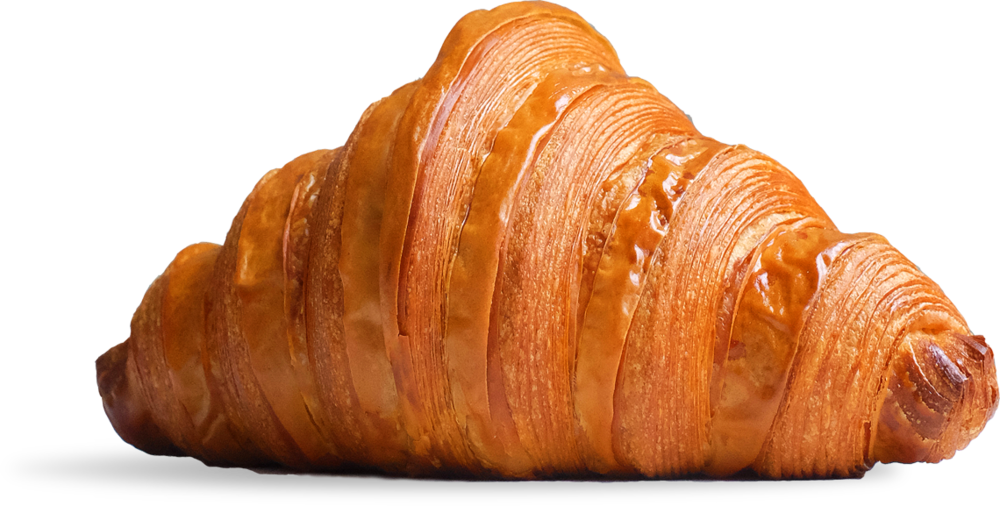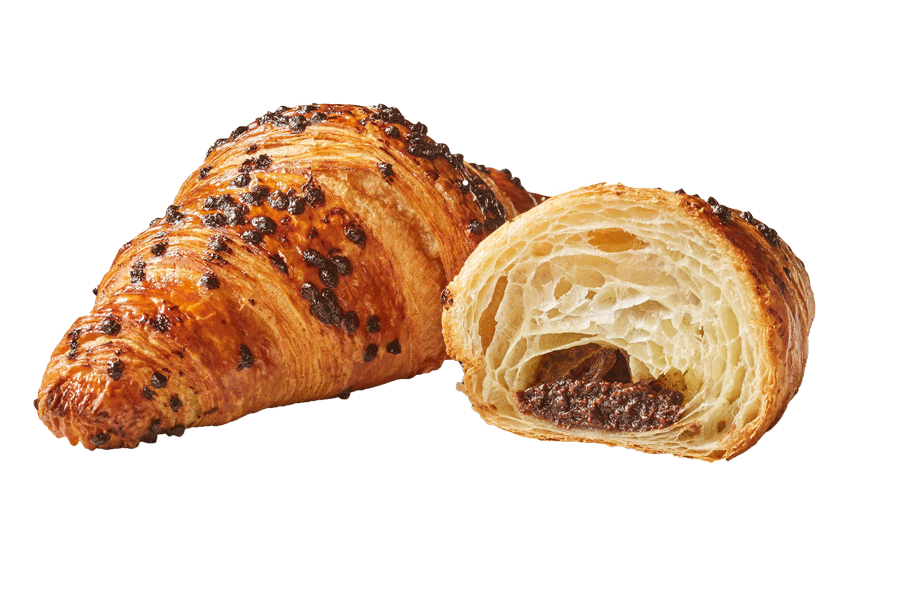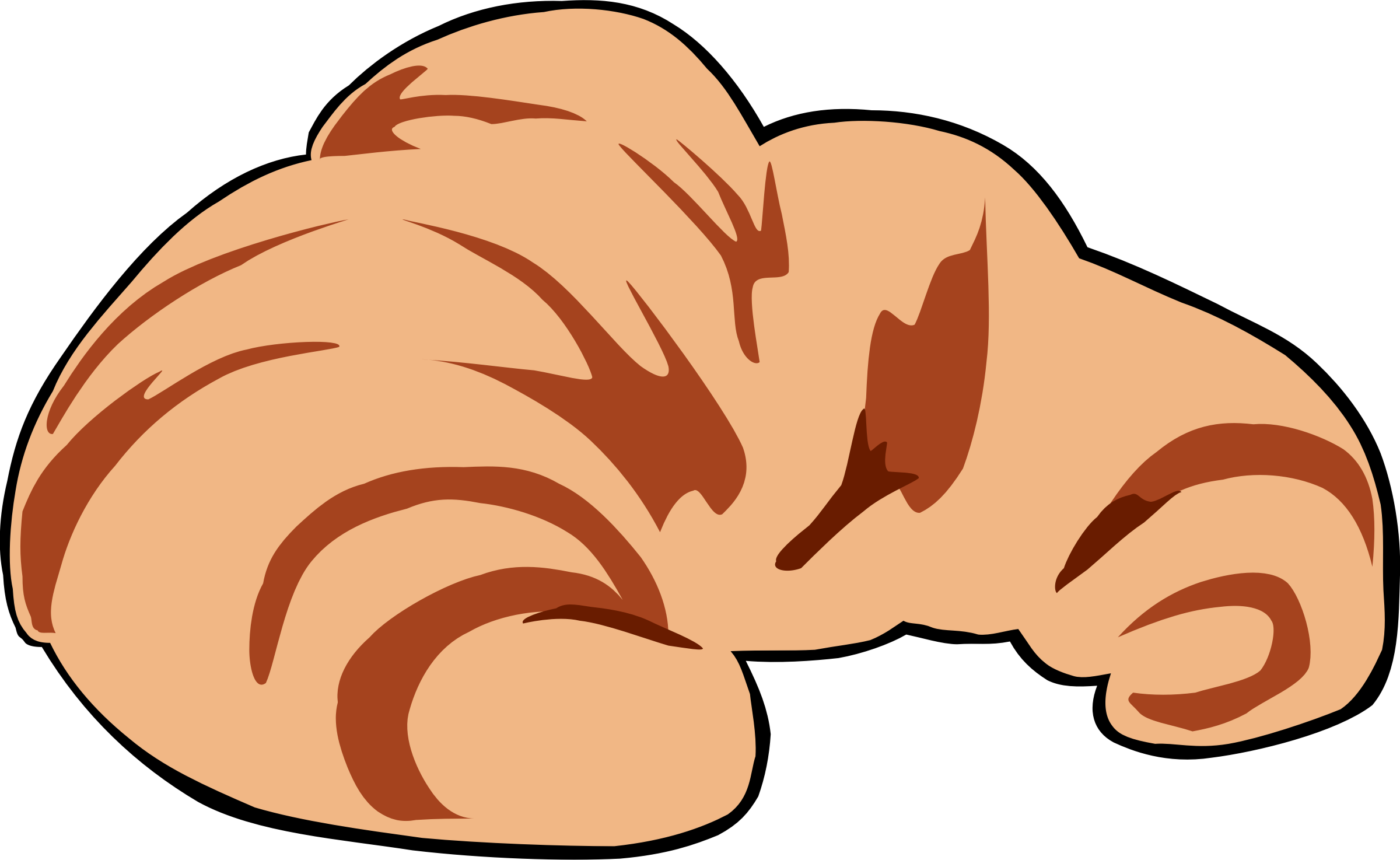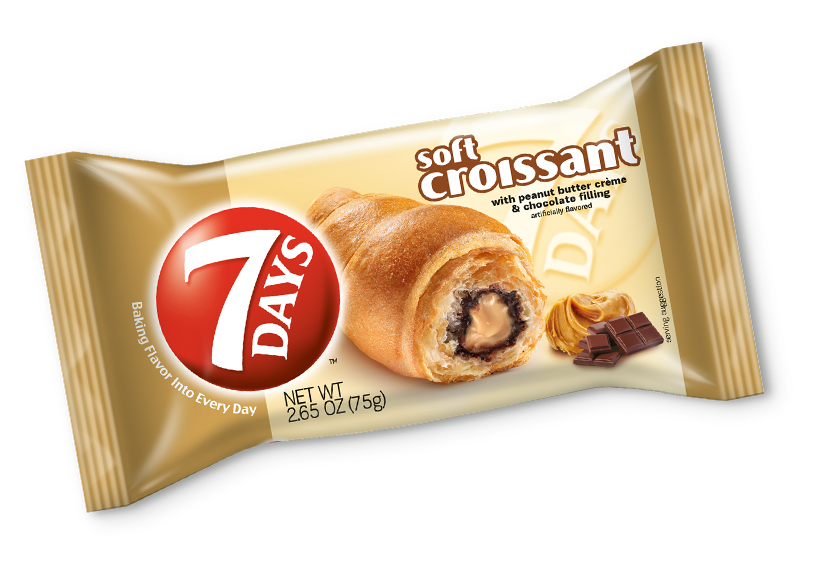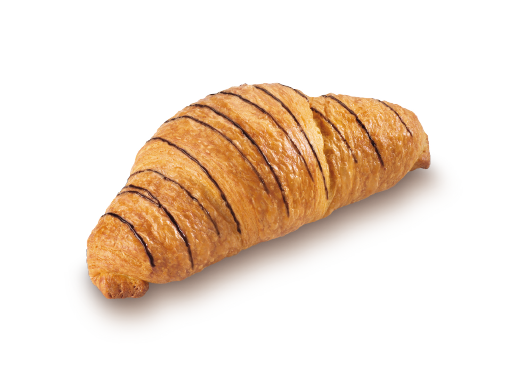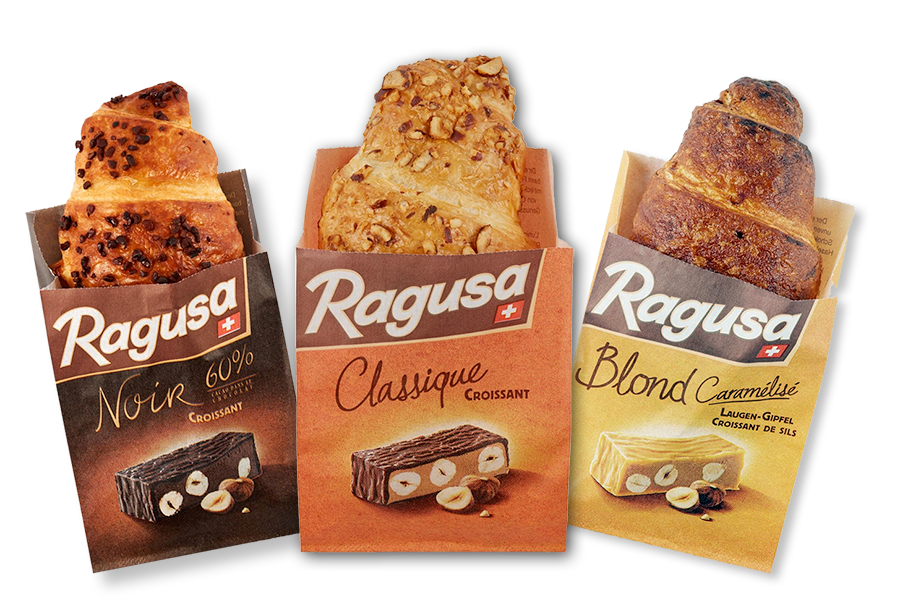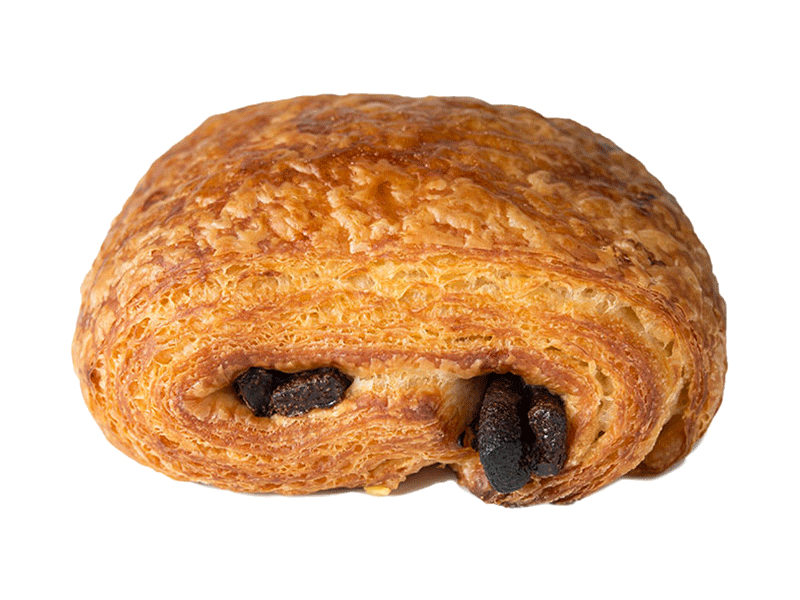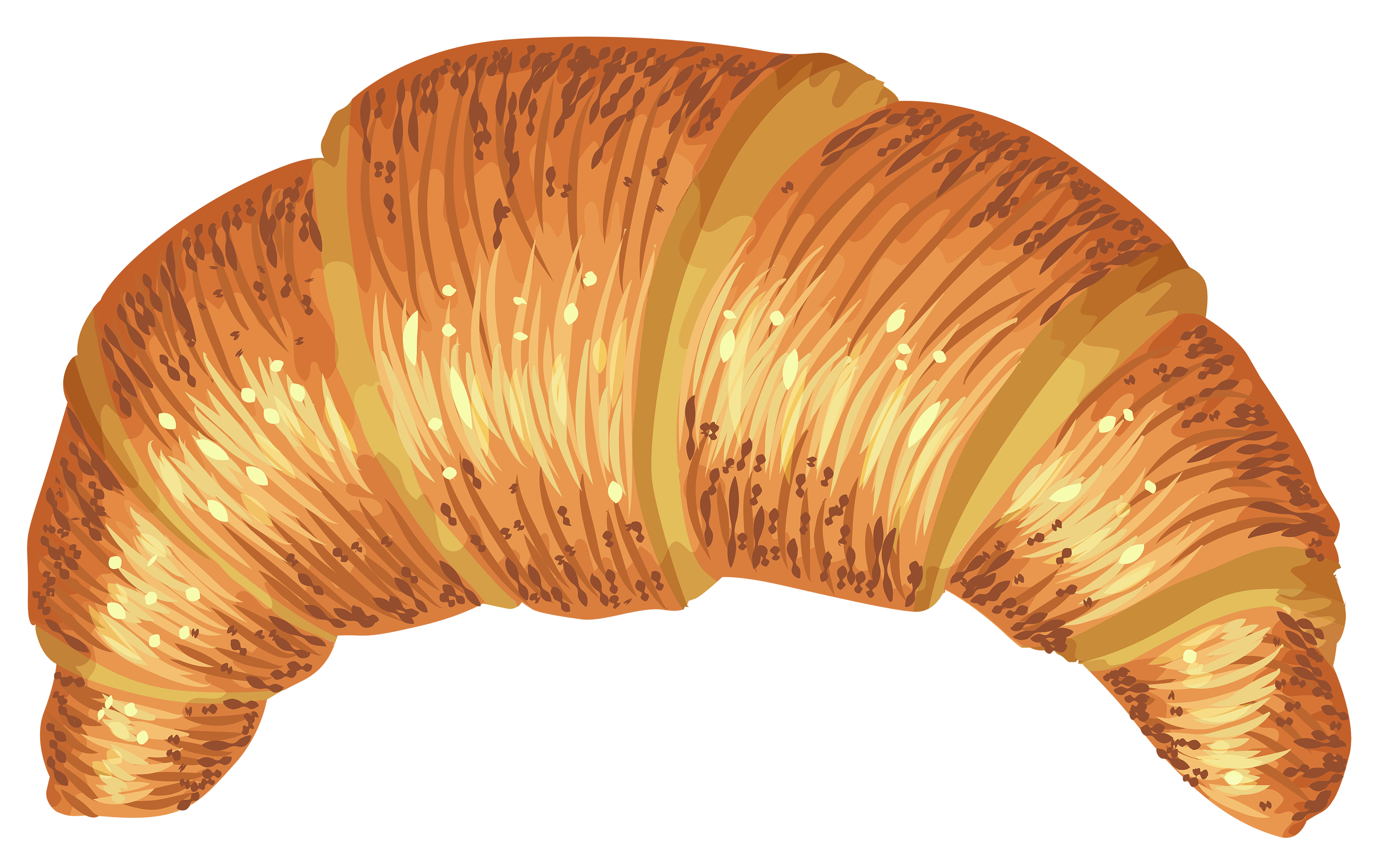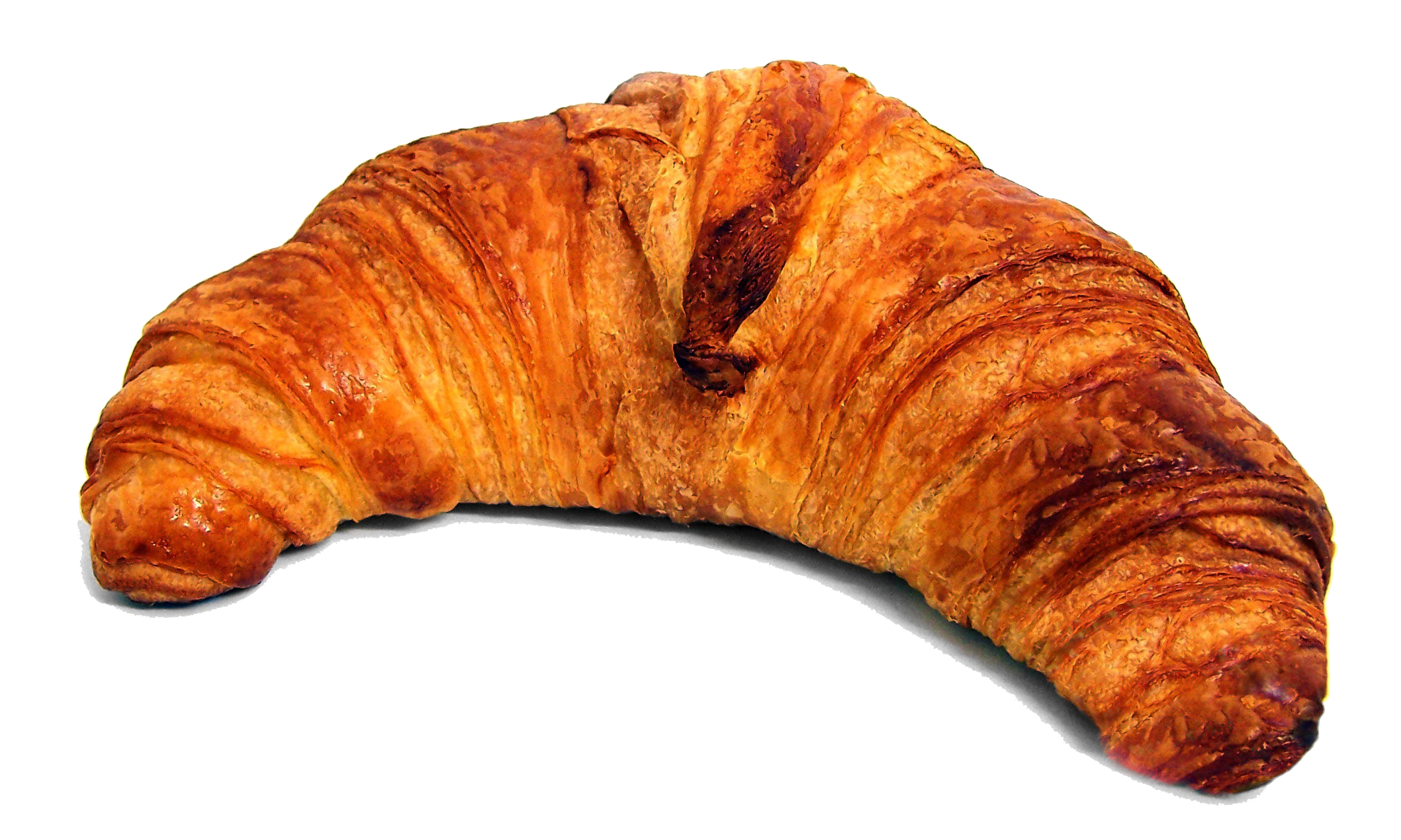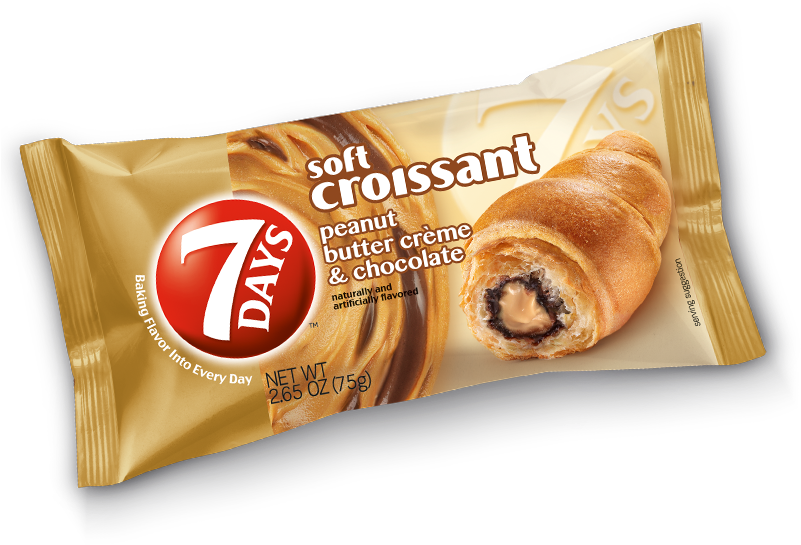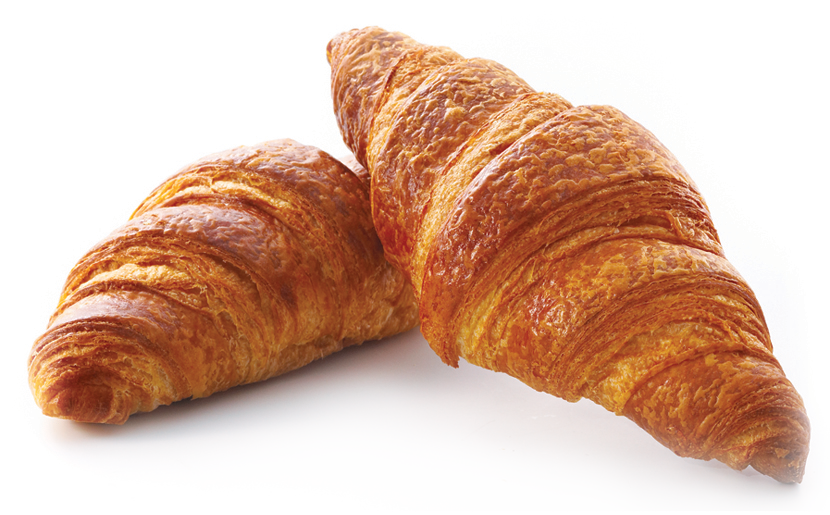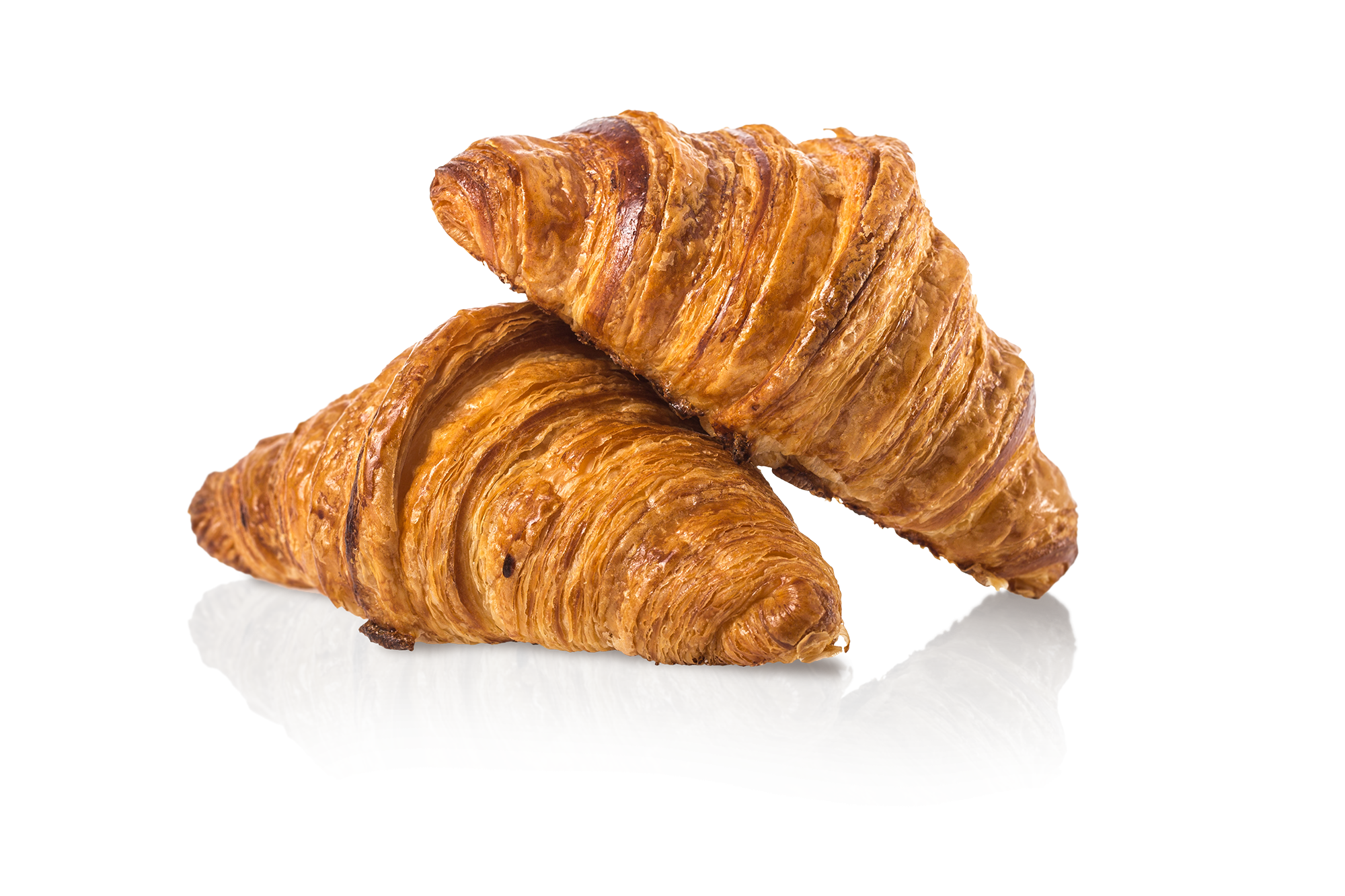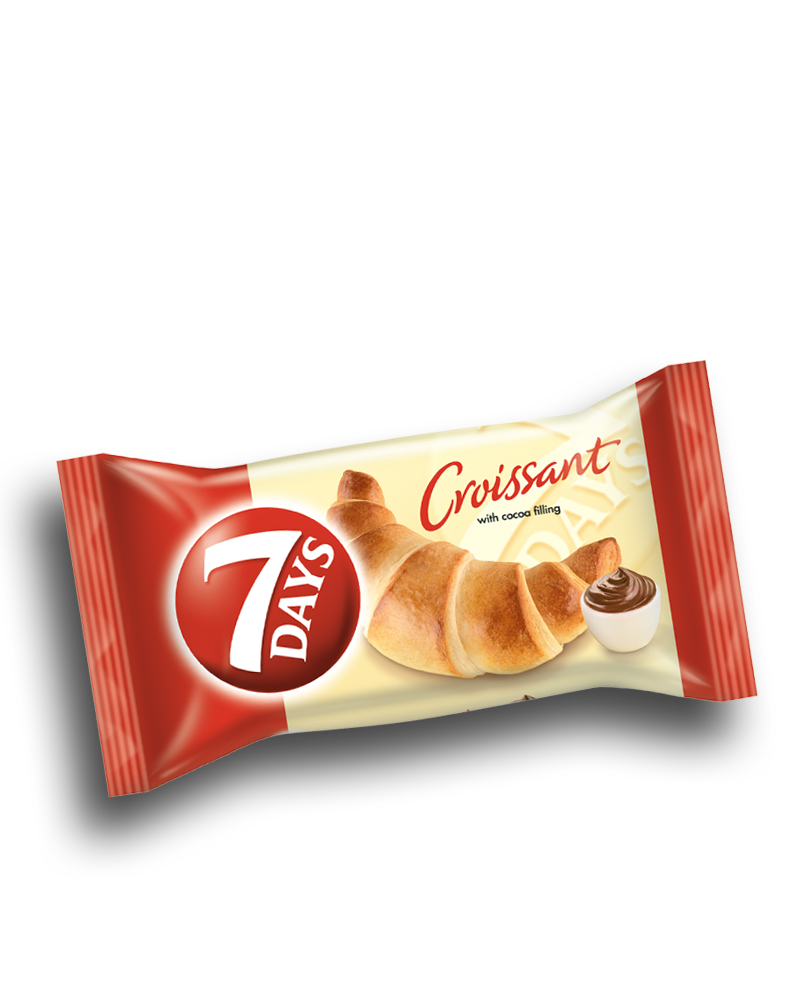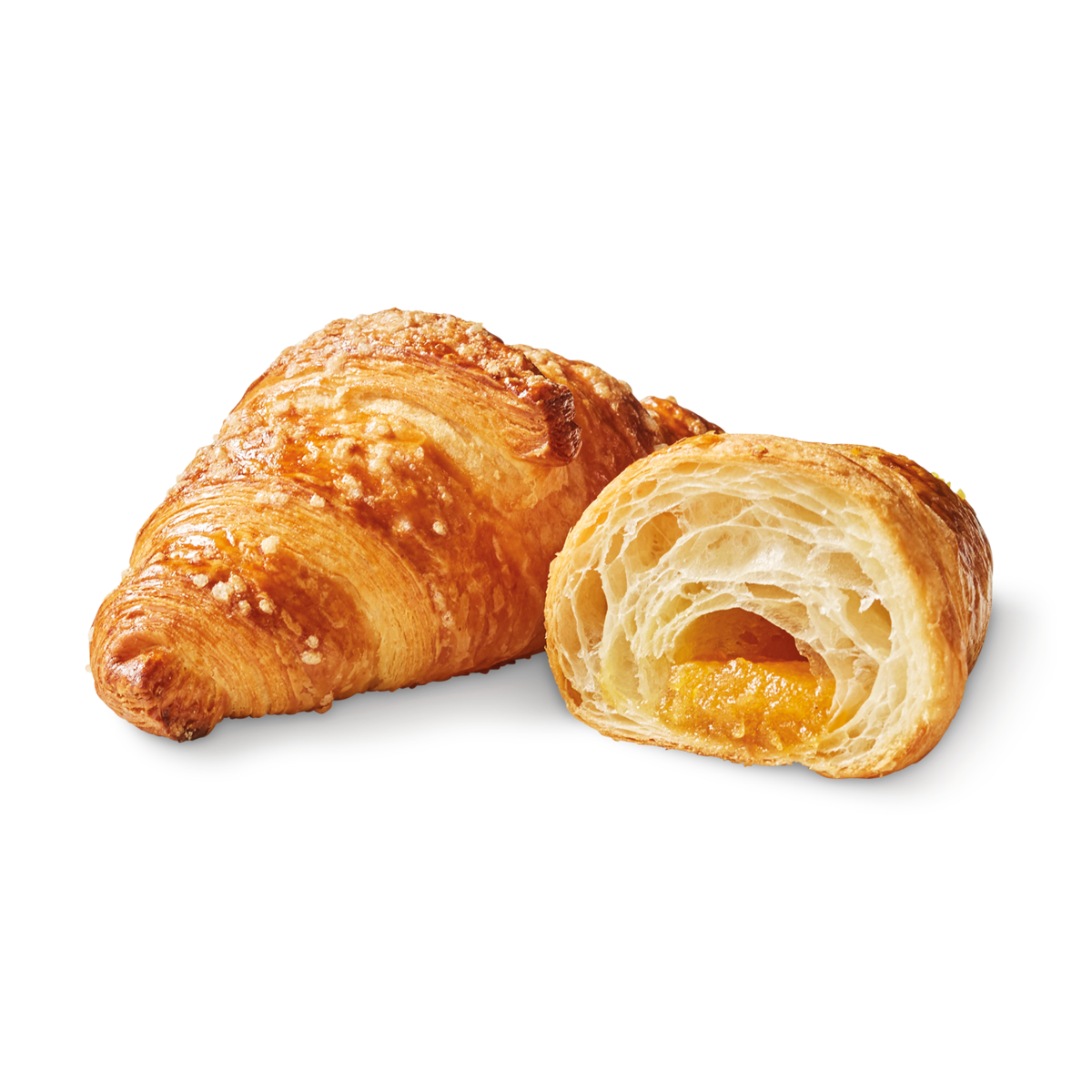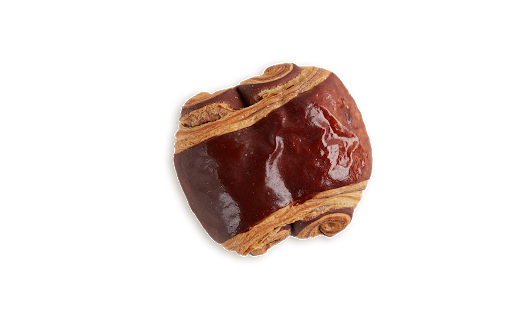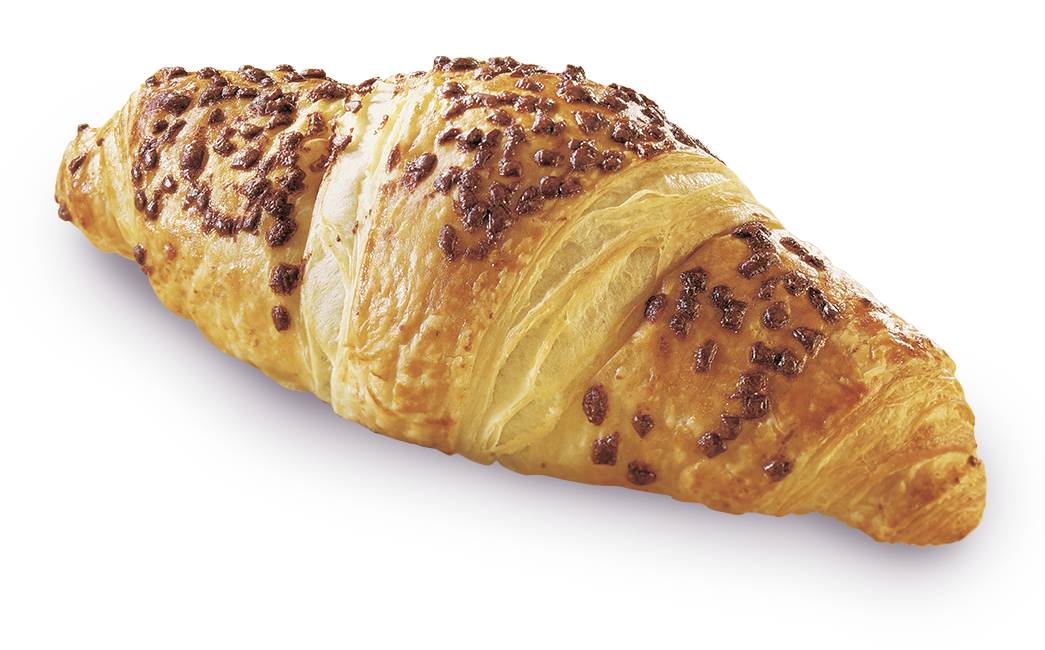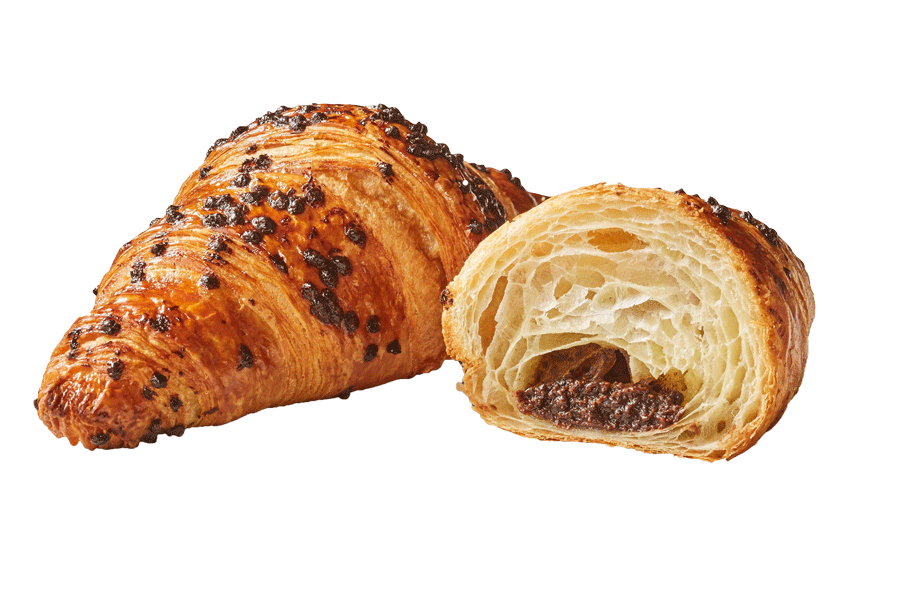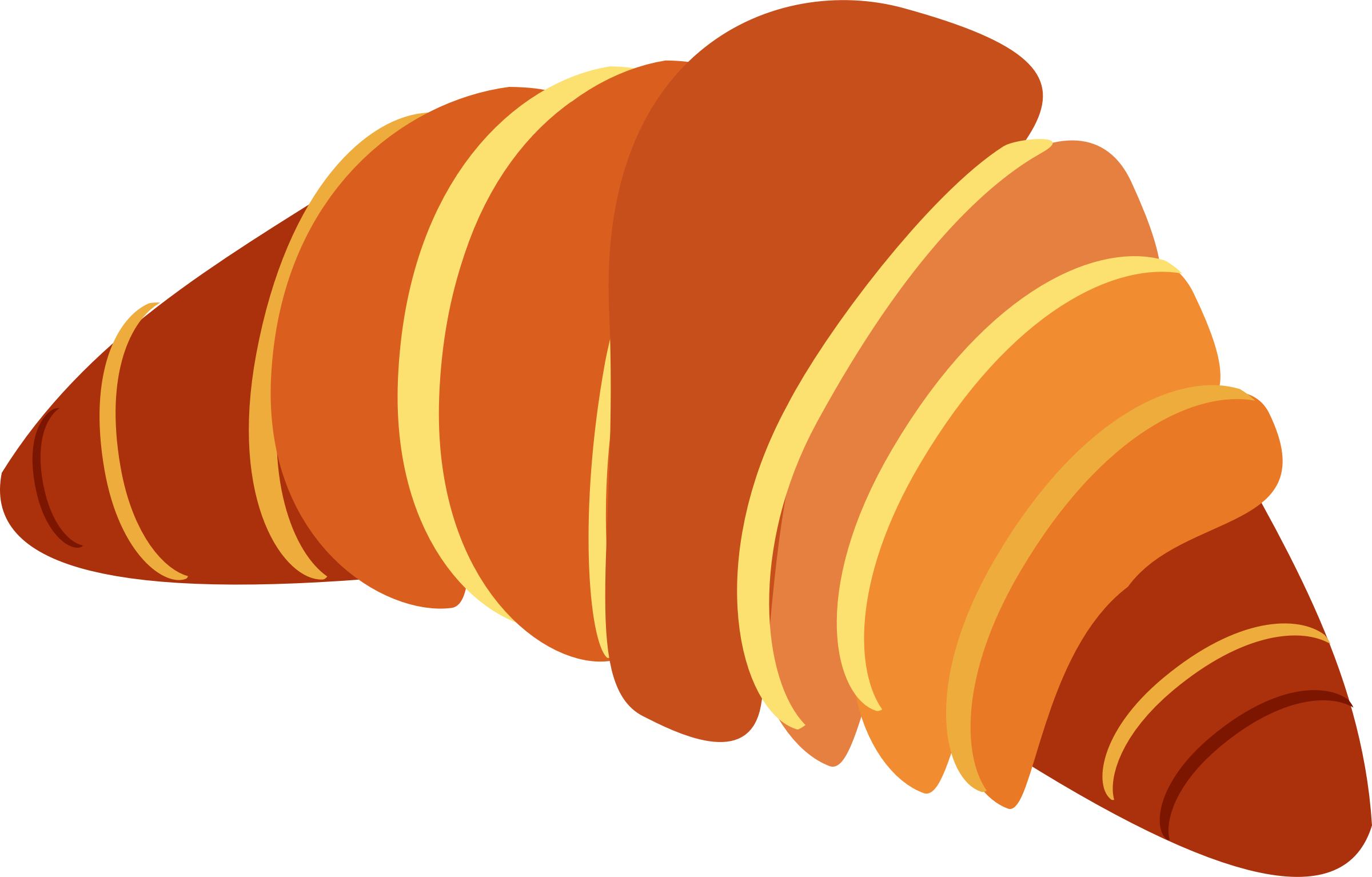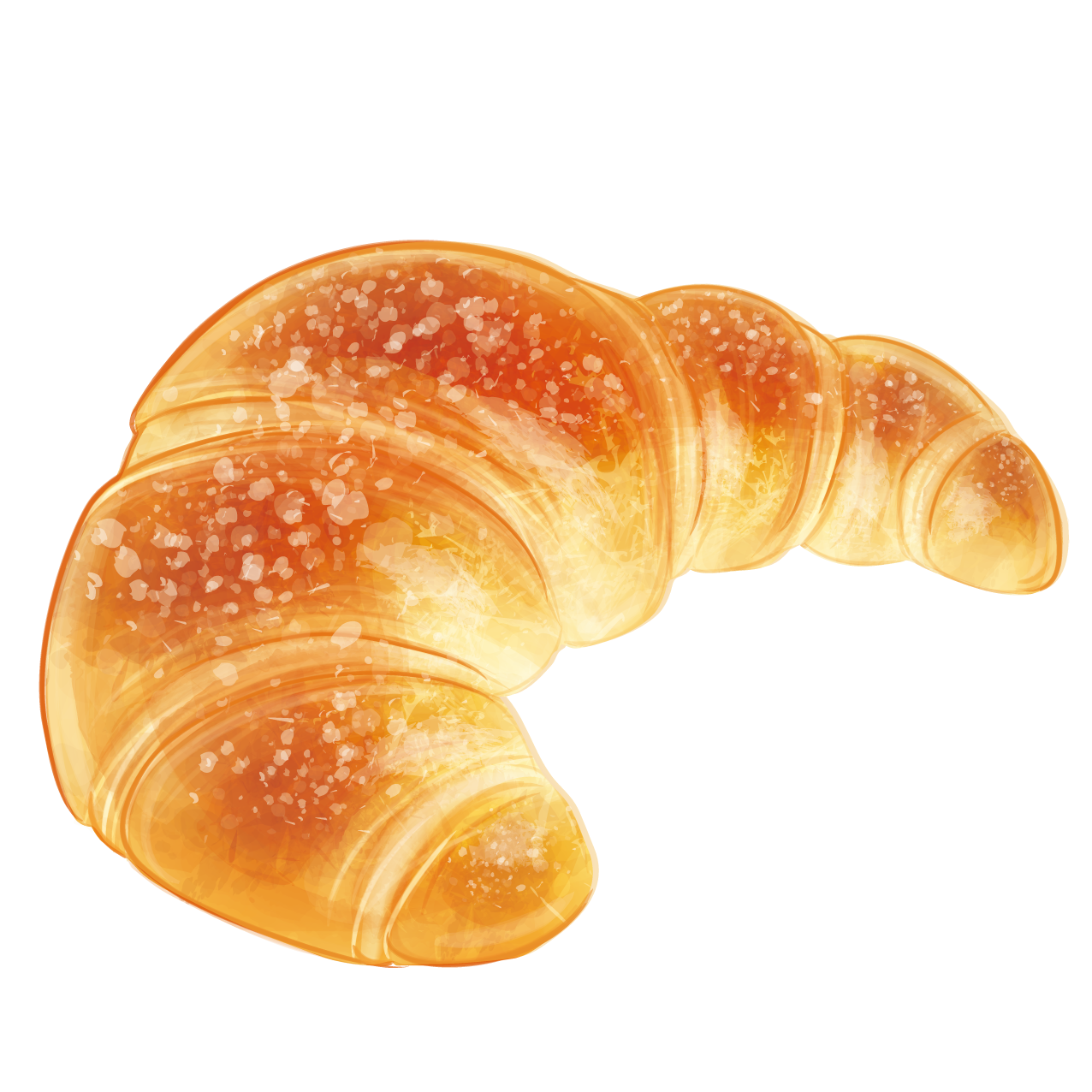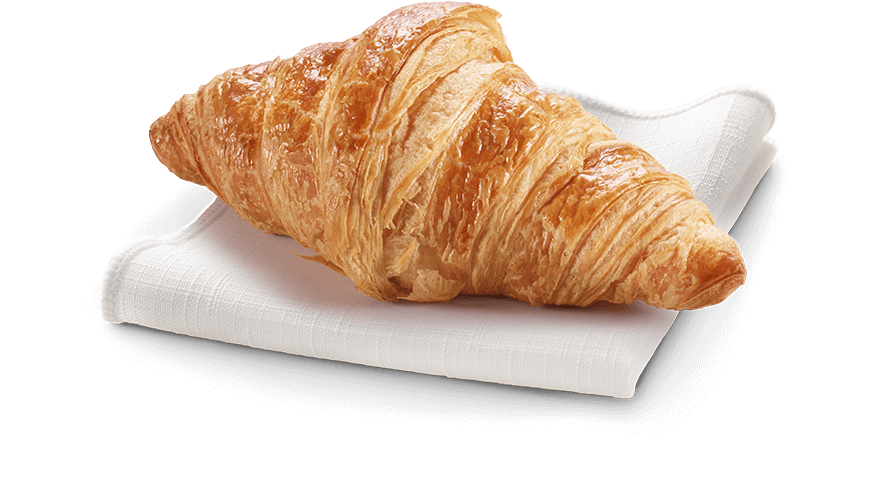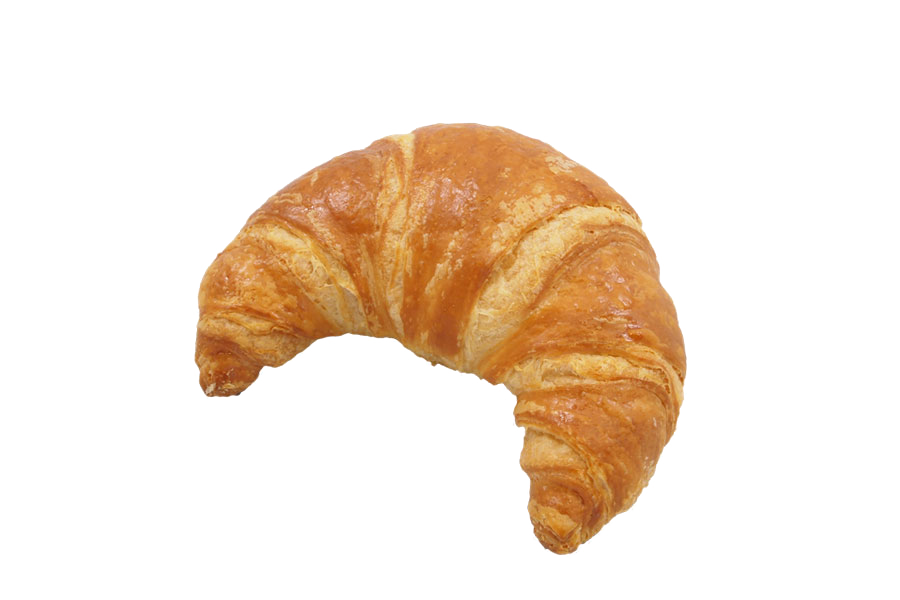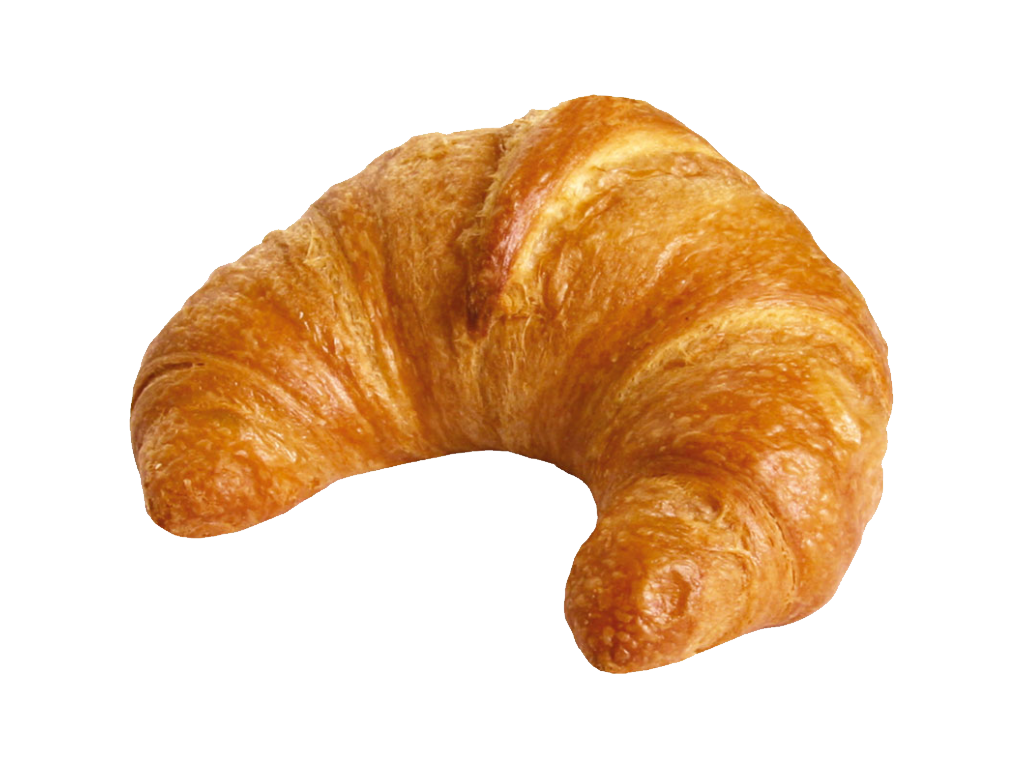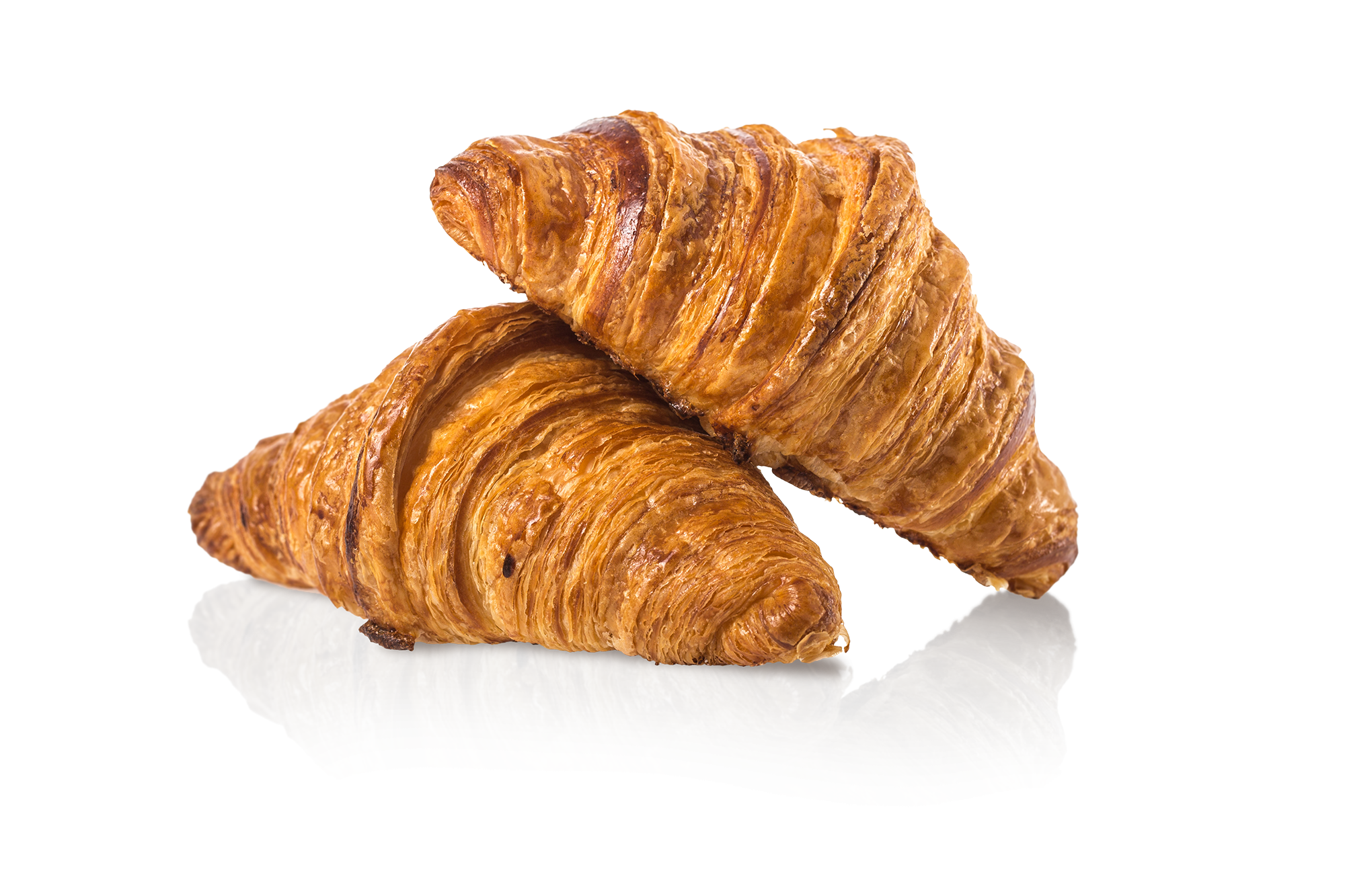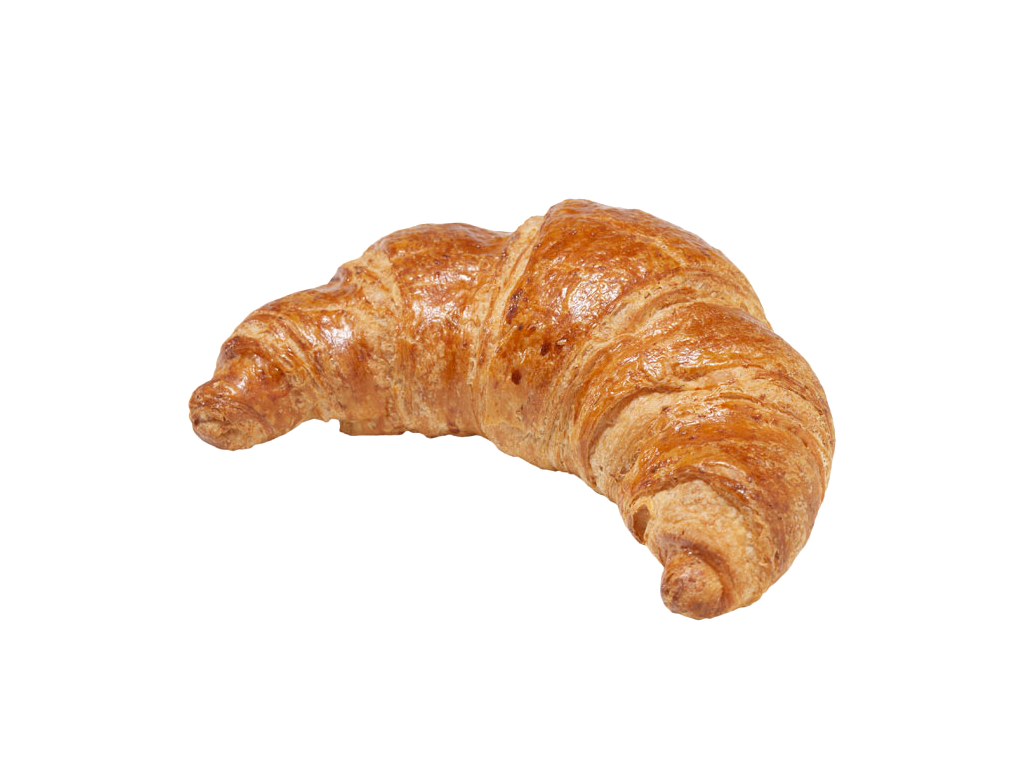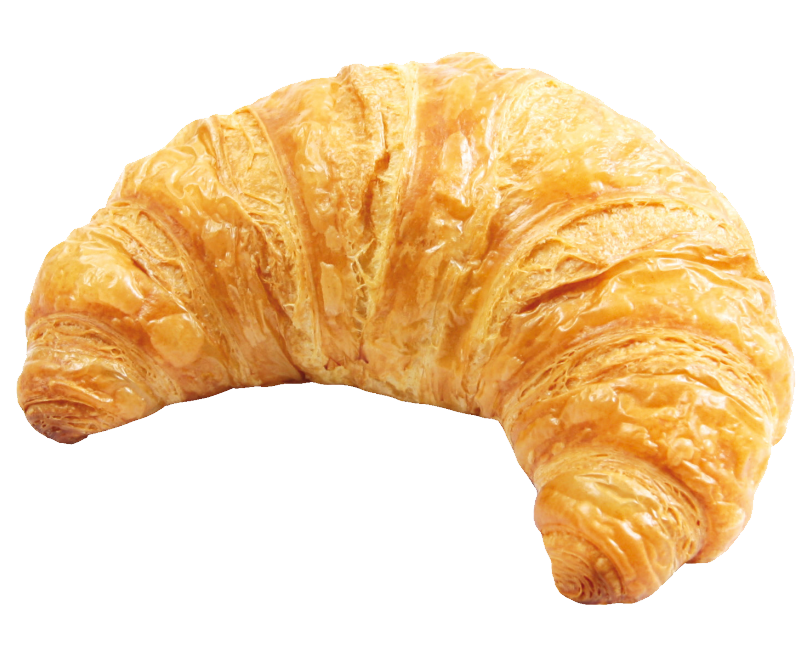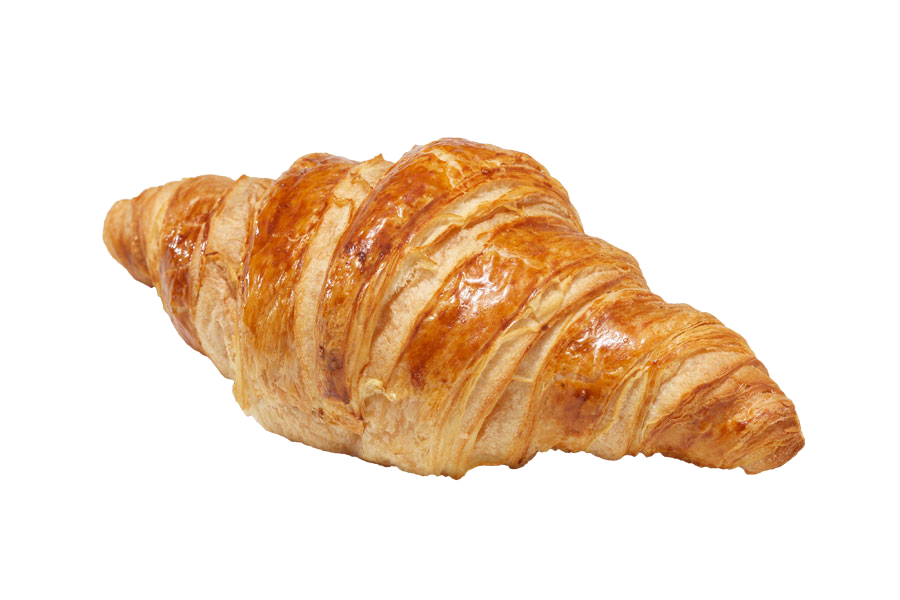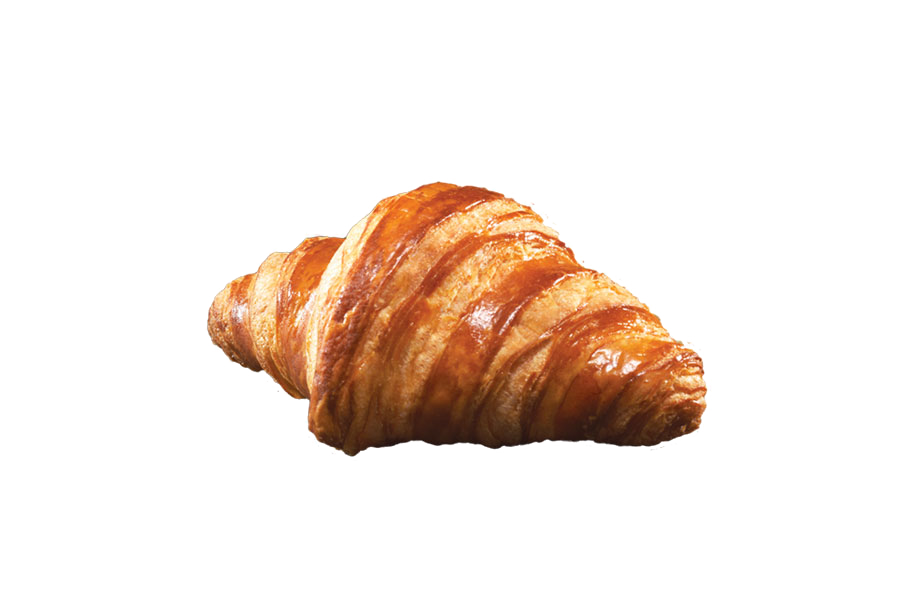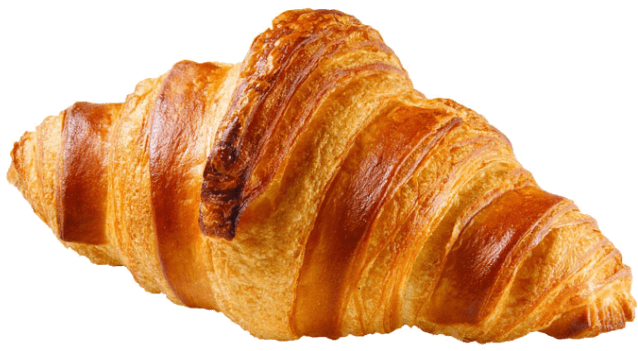Download top and best high-quality free Croissant PNG Transparent Images backgrounds available in various sizes. To view the full PNG size resolution click on any of the below image thumbnail.
License Info: Creative Commons 4.0 BY-NC
Croissants are a buttery, flaky, viennoiserie pastry of Austrian origin. It is named after its historic crescent. Croissants and other Viennoiseries are made of yeast-fermented layered dough. The dough is layered with butter, rolled several times in a row, folded, and then rolled into sheets by a lamination technique. This process creates a layered flake-like texture that resembles a pie crust.
The crescent-shaped bread may have been made since the Renaissance, while the crescent-shaped cake may have been made since ancient times. Croissants are a staple of Austrian and French bakeries and patisseries. In the late 1970s, the development of factory-made, frozen, pre-formed, unfired dough made unskilled workers into freshly baked fast food. The croissant bakery, especially the La Croissant Tree, was a French reaction to American-style fast food. As of 2008, 30-40% of croissants sold in French bakeries and patisseries were baked from frozen dough.
The origin of the croissants, Kipferul, which dates back to at least the 13th century in Austria, took various forms. Kipfell can be plain, or you can use nuts or other fillings (some consider rugelach to be a type of kifli). Some Egyptians arguably argue that Kipfell could have been based on the feteer meshaltet pastry known to Egyptians.
The birth of the croissant itself, an adaptation from the more straightforward form of kifli before the invention of viennoiseries, was at least 1839 when Austrian artillery Augustus Than founded a bakery in Vienna ( Dating back to 1838). (“Boulangerie Viennoise”) 92, rue de Richelieu in Paris. This bakery served Viennese cuisines such as kipferl and Vienna Loaf and quickly aroused popularity with French imitators (and in 20th-century terms for 20th-century Viennese-style pastries). This is the concept of viennoiserie. The French version of Kipfer is named after its crescent shape, which makes it globally identifiable.
Alan Davidson, the editor of the Oxford Companion for Food, had no current croissant printed recipe in a French recipe book until the early 20th century. The oldest French reference to croissants he found was in the “fantasy or gorgeous bread” of Payen’s Des Substances alimentaires in 1853. However, early recipes for non-laminated croissants were found in the 19th century, and at least one reference to croissants was established, and French bread appeared as early as 1850.
Download Croissant PNG images transparent gallery.
- Croissant PNG Images
Resolution: 830 × 515
Size: 651 KB
Image Format: .png
Download
- Croissant PNG Photo
Resolution: 800 × 800
Size: 477 KB
Image Format: .png
Download
- Croissant PNG Pic
Resolution: 567 × 216
Size: 172 KB
Image Format: .png
Download
- Croissant PNG Picture
Resolution: 541 × 346
Size: 212 KB
Image Format: .png
Download
- Croissant PNG Transparent HD Photo
Resolution: 3000 × 1803
Size: 2398 KB
Image Format: .png
Download
- Croissant PNG
Resolution: 513 × 286
Size: 274 KB
Image Format: .png
Download
- Croissant Transparent
Resolution: 1200 × 1200
Size: 715 KB
Image Format: .png
Download
- Croissant
Resolution: 2005 × 1131
Size: 3766 KB
Image Format: .png
Download
- Choco Fills Croissant PNG Clipart
Resolution: 1200 × 1200
Size: 895 KB
Image Format: .png
Download
- Choco Fills Croissant PNG Download Image
Resolution: 820 × 570
Size: 371 KB
Image Format: .png
Download
- Choco Fills Croissant PNG File
Resolution: 1280 × 720
Size: 834 KB
Image Format: .png
Download
- Choco Fills Croissant PNG Free Download
Resolution: 624 × 284
Size: 115 KB
Image Format: .png
Download
- Choco Fills Croissant PNG Free Image
Resolution: 709 × 342
Size: 94 KB
Image Format: .png
Download
- Choco Fills Croissant PNG HD Image
Resolution: 800 × 586
Size: 116 KB
Image Format: .png
Download
- Choco Fills Croissant PNG High Quality Image
Resolution: 1280 × 1120
Size: 1468 KB
Image Format: .png
Download
- Choco Fills Croissant PNG Image
Resolution: 713 × 437
Size: 462 KB
Image Format: .png
Download
- Choco Fills Croissant PNG Pic
Resolution: 800 × 800
Size: 225 KB
Image Format: .png
Download
- Choco Fills Croissant PNG Picture
Resolution: 2000 × 1974
Size: 620 KB
Image Format: .png
Download
- Choco Fills Croissant PNG
Resolution: 601 × 395
Size: 460 KB
Image Format: .png
Download
- Choco Fills Croissant Transparent
Resolution: 815 × 580
Size: 415 KB
Image Format: .png
Download
- Choco Fills Croissant
Resolution: 540 × 367
Size: 143 KB
Image Format: .png
Download
- Chocolate Croissant PNG Clipart
Resolution: 1000 × 506
Size: 616 KB
Image Format: .png
Download
- Chocolate Croissant PNG Download Image
Resolution: 512 × 512
Size: 22 KB
Image Format: .png
Download
- Chocolate Croissant PNG File Download Free
Resolution: 900 × 600
Size: 154 KB
Image Format: .png
Download
- Chocolate Croissant PNG File
Resolution: 2400 × 1474
Size: 175 KB
Image Format: .png
Download
- Chocolate Croissant PNG Free Download
Resolution: 815 × 580
Size: 453 KB
Image Format: .png
Download
- Chocolate Croissant PNG Free Image
Resolution: 510 × 370
Size: 160 KB
Image Format: .png
Download
- Chocolate Croissant PNG HD Image
Resolution: 900 × 614
Size: 863 KB
Image Format: .png
Download
- Chocolate Croissant PNG High Quality Image
Resolution: 800 × 600
Size: 174 KB
Image Format: .png
Download
- Chocolate Croissant PNG Image File
Resolution: 3000 × 1892
Size: 2205 KB
Image Format: .png
Download
- Chocolate Croissant PNG Image HD
Resolution: 2117 × 1270
Size: 2570 KB
Image Format: .png
Download
- Chocolate Croissant PNG Image
Resolution: 801 × 545
Size: 582 KB
Image Format: .png
Download
- Chocolate Croissant PNG Images
Resolution: 830 × 515
Size: 651 KB
Image Format: .png
Download
- Chocolate Croissant PNG Photo
Resolution: 2000 × 1333
Size: 2333 KB
Image Format: .png
Download
- Chocolate Croissant PNG Pic
Resolution: 805 × 1000
Size: 390 KB
Image Format: .png
Download
- Chocolate Croissant PNG Picture
Resolution: 1200 × 1200
Size: 845 KB
Image Format: .png
Download
- Chocolate Croissant PNG Transparent HD Photo
Resolution: 512 × 333
Size: 85 KB
Image Format: .png
Download
- Chocolate Croissant PNG
Resolution: 1045 × 650
Size: 949 KB
Image Format: .png
Download
- Chocolate Croissant Transparent
Resolution: 900 × 600
Size: 154 KB
Image Format: .png
Download
- Chocolate Croissant
Resolution: 2400 × 1534
Size: 163 KB
Image Format: .png
Download
- Croissant PNG Clipart
Resolution: 1276 × 1276
Size: 883 KB
Image Format: .png
Download
- Croissant PNG Download Image
Resolution: 869 × 496
Size: 130 KB
Image Format: .png
Download
- Croissant PNG File Download Free
Resolution: 900 × 600
Size: 260 KB
Image Format: .png
Download
- Croissant PNG File
Resolution: 1024 × 768
Size: 529 KB
Image Format: .png
Download
- Croissant PNG Free Download
Resolution: 531 × 426
Size: 365 KB
Image Format: .png
Download
- Croissant PNG Free Image
Resolution: 2000 × 1333
Size: 2214 KB
Image Format: .png
Download
- Croissant PNG HD Image
Resolution: 1024 × 768
Size: 372 KB
Image Format: .png
Download
- Croissant PNG High Quality Image
Resolution: 812 × 656
Size: 522 KB
Image Format: .png
Download
- Croissant PNG Image File
Resolution: 900 × 600
Size: 373 KB
Image Format: .png
Download
- Croissant PNG Image HD
Resolution: 900 × 600
Size: 220 KB
Image Format: .png
Download
- Croissant PNG Image
Resolution: 638 × 351
Size: 156 KB
Image Format: .png
Download
